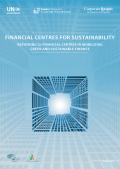

In recent decades, Alberta has experienced significant changes in its climate as well as its economy, population and environment. Mean annual temperatures are increasing and projected to continue to rise in the coming decades—potentially by 2.0°C by the 2030s and 4.0°C by the 2060s (compared to the 1990s) — should...
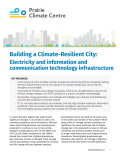
In recent decades, Alberta has experienced significant changes in its climate as well as its economy, population and environment. Alberta’s mean annual temperatures are increasing and projected to continue to rise in the coming decades—potentially by 2.0°C by the 2030s and 4.0°C by the 2060s (compared to the 1990s) —...
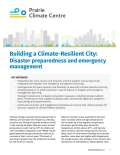
Climate change is already being experienced in Alberta, and will alter the frequency, intensity, duration and timing of extreme weather events in the coming decades. Alberta’s mean annual temperature could rise by 2.0°C by 2030s and 4.0°C by 2060s (compared to the 1990s) should global greenhouse gas emissions continue to...
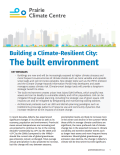
In recent decades, Alberta has experienced significant changes in its climate as well as its economy, population and environment. Provincial mean annual temperatures are increasing and are projected to continue to rise in the coming decades—potentially by 2.0°C by the 2030s and 4.0°C by the 2060s (compared to the 1990s)...
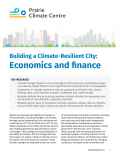
Alberta has experienced significant changes in recent decades, including changes in its climate. Average annual temperatures are increasing and could rise by 2.0°C by the 2030s and 4.0°C by the 2060s (compared to the 1990s) should the current rate of global greenhouse gas emissions remain unchanged. Total average annual precipitation...
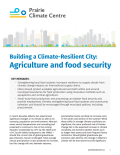
In recent decades, Alberta has experienced significant changes in its climate as well as its economy, population and environment. Alberta’s mean annual temperatures are increasing and projected to continue to rise in the coming decades—potentially by 2.0°C by the 2030s and 4.0°C by the 2060s (compared to the 1990s) —...
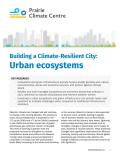
Alberta’s climate has changed and will continue to change in the coming decades. The province’s mean annual temperature is expected to rise 2°C by the 2030s and 4°C by the 2060s (compared to the 1990s) should the current rate of global greenhouse gas emissions remain unchanged. This level of warming...
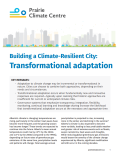
Alberta’s climate is changing: temperatures are rising, particularly in the winter; heat waves have become more frequent; and the growing season has become longer. These trends are expected to continue into the future. Alberta’s mean annual temperature could rise by 2.0°C by the 2030s and 4.0°C by the 2060s (compared...

In recent decades, Alberta has experienced significant changes in its climate as well as its economy, population and environment. The province’s mean annual temperatures are increasing and projected to continue to rise in the coming decades—potentially by 2.0°C by the 2030s and 4.0°C by the 2060s (compared to the 1990s)—should...
